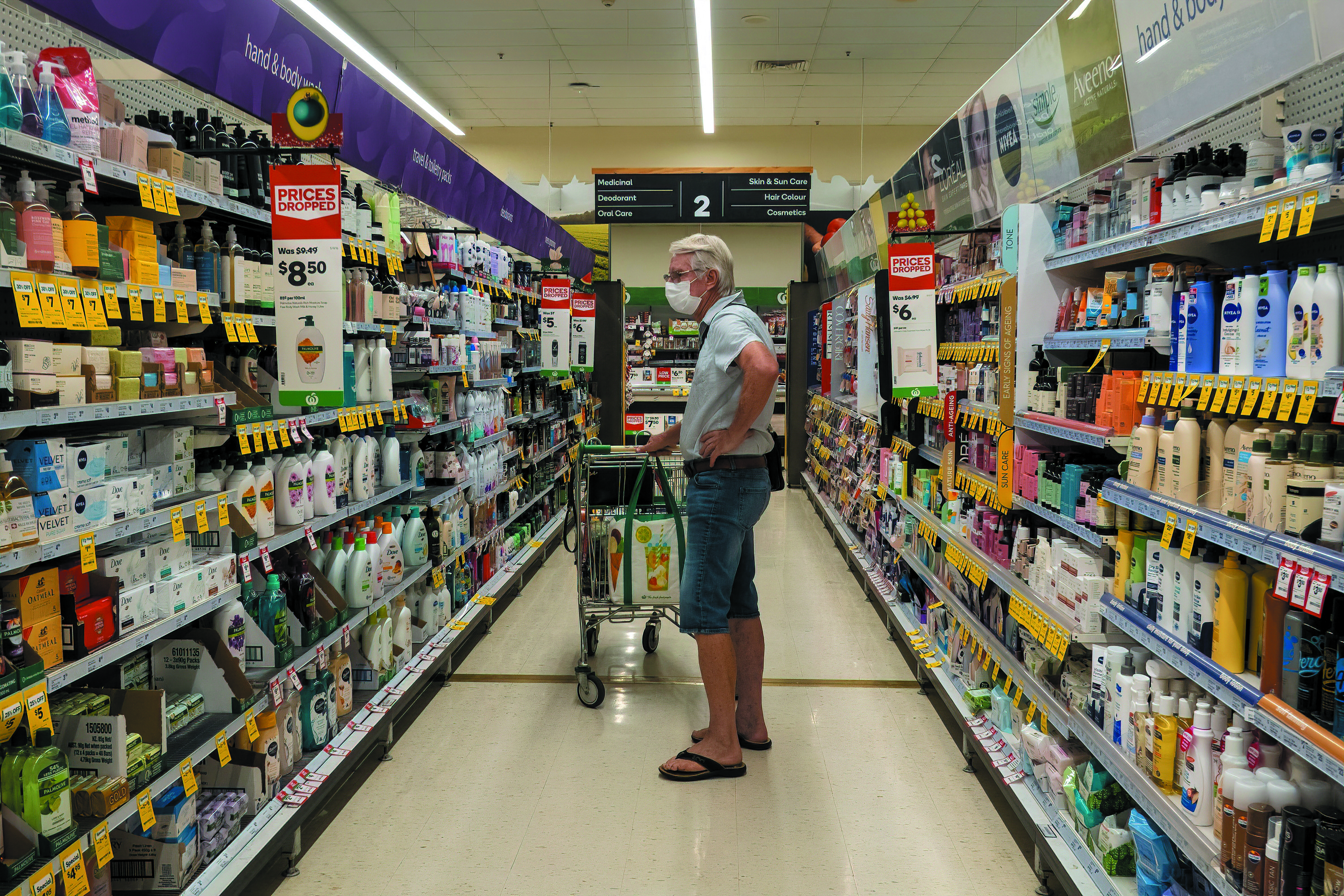Urgent action for cost-of-living relief
Federal ministers are drafting the next Federal Budget and National Seniors Australia has delivered its solutions for a fairer and more prosperous Australia, including the need for cost-of-living relief and systemic reform to support all Australians as they age.

High inflation is hurting household budgets. A recent National Seniors report found that 66% of older people were concerned about keeping up with the rising cost of living in the long-term, with 26% extremely concerned.
That is why we need a budget that provides direct relief coupled with longer-term policy reform to ensure our standard of living does not go backward.
National Seniors' plan to address this, outlined in the Pre-Budget Submission 2024, is a suite of well-researched innovative policy recommendations that tells the government what you, our members, have been telling us over the past few years about how life for seniors and their families can be improved.
The Federal Budget will be announced on 14 May and this current budget cycle comes at a critical time for Australia.
The pressure of rising living costs is being felt by all, including older people.
The rapid increase in the cost of groceries, fuel, energy, rents, healthcare, and other essential items is stretching many household budgets to the point of breaking.
Not everyone is feeling cost-of-living impacts equally. Our research found that cost-of-living pressures were being felt disproportionately by:
• Older people with low incomes
• Older renters
• Older people living in rural and remote areas
• Older people who were single
• Younger seniors (under 60).
Many older Australians on low, fixed incomes are especially doing it tough. While rising interest rates can offer high returns for those with investments, fear of rising living costs will likely reduce consumer confidence and have negative impacts on the economy.
Our cost-of-living relief options include immediate relief for fuel and energy costs and continuing the deeming rate freeze to ensure pension payments and concessions are maintained in the short-term.
We also recommend significant policy reforms to allow additional concessions and support to those most in need.
In the area of health, we argue for a formal Productivity Commission review of private health to identify ways to reduce premiums and out-of-pocket costs.
We also argue for action on private health rebates for low-income earners to maintain and boost coverage.
Additionally, we call for targeted support for dental care for those most in need.
In housing, we advocate for policy changes to support older people offering to house other older people, enable older people to downsize later on in life, and boost financial support for struggling renters.
We continue to advocate for a targeted exemption from the Age Pension income test for care sector workers. We also want changes to Age Pension gifting rules to give seniors a greater incentive to make financial contributions to charities and younger generations.
Our recommendations will help to address cost-of-living pressures facing older people and their families and ensure they feel the government is in their corner.
You can read the full Federal Budget 2024 Submission here, including the budget impact of our recommendations. Read on for a breakdown of some key points.
Cut fuel costs
Automotive fuel has been one of the primary contributors to change in the Consumer Price Index (or CPI, which is a measure of the average change over time in the prices paid by households for a fixed basket of goods and service) in recent times rising 7.9% in the 12 months to September 2023.
While the Australian Government has little control over the price of oil, it does control the taxes on the fuel we pump into our vehicles. It’s called the fuel excise and is a general revenue-raising tax for which motorists currently pay 49.6 cents for every litre of fuel they purchase—between one-quarter and one-third of the bowser price. The excise increases biannually in line with the CPI.
Rising fuel costs cause many everyday items to cost more. To reduce the impact the government could:
• Temporarily reduce fuel excise while oil prices remain high (as was done previously in 2022)
• Pause indexation while oil prices are high
• Revise the method used to calculate indexation to ensure it is not contributing to inflationary pressures.
Cost-of-living rebate
Cost of living is the number one issue facing Australians, particularly those on low incomes. A recent National Seniors survey of older Australians found that cost-of-living, including rising grocery and insurance costs, was the number one policy issue for seniors.
High inflation eats away at household budgets. Yet at the same time, inflation has contributed positively to the Federal Budget.
The government could deliver a rebate to households via electricity bill relief, as was provided to households in 2023. A base rebate could be provided to all households with a higher rebate to those most in need.
Freeze deeming rates for an additional 12 months
Deeming rates are used as part of the Age Pension income test to determine eligibility for the Commonwealth Seniors Health Card and to determine co-contributions for aged care services.
The rates have been frozen for two years but this freeze will lapse from 1 July 2024. Because interest rates are much higher than when deeming rates were first frozen, a lifting of the freeze would mean hundreds of thousands of pensioners would have their pensions reduced, some Commonwealth Seniors Health Card holders could lose this benefit, and aged care costs would increase for those required to contribute.
The government should continue the freeze for 12 months and use this time to reform the method used to set deeming rates. Doing so would mean there is no confusion about how rates are set when interest rates change.

Review and redesign the private health insurance system
A hot topic among seniors—and others—is the simultaneous escalation of private insurance, medical out-of-pocket costs, and diminishing value of private insurance offerings.
It is a complex area, with many moving and interconnected parts. We believe only a whole-of-system analysis and redesign will address the full range of problems facing policyholders.
The Productivity Commission is best placed to undertake an in-depth inquiry, focusing on:
• The growth of private health insurance premiums and out-of-pocket expenses
• The value and scope of product offerings covered by private health insurance
• The reforms needed to minimise premiums and out-of-pocket costs.
As an immediate action in this area, we believe it makes financial sense for the government to increase the Private Health Insurance Rebate for those struggling to maintain their cover.
It would cost the government more to provide treatment to this group of people if they moved out of the private health system into the public health system.
Create a targeted Seniors Dental Benefits Scheme
Older people are more likely to have poor oral health, especially those with low socioeconomic status and those living in residential aged care. Many seniors who cannot afford dentists go without and may suffer poor dental health, which can contribute to or cause heart disease, stroke, and respiratory infection.
That’s why we are recommending the establishment of a Seniors Dental Benefit Scheme—based on the existing Child Dental Benefit Scheme—to provide $500 per year to eligible seniors towards their dental treatment. Initially, it would be available to older people with limited means and to aged care residents before being expanded to include other groups.
Supporting low-income pensioners to access private dental care to improve their oral health could help ease pressure on the public dental system and other parts of the hospital and health system, reducing government costs.
Making house sharing more attractive
While not for everyone, there is a growing trend towards sharehousing among older homeowners and renters.
Older people report sharehousing fulfilling several needs. It addresses loneliness, provides increased safety, offers stronger social connections, and helps meet living costs. However, those who consider this option face several barriers, including financial disincentives, a lack of information, and concerns about risk.
To support this, the government should introduce policy changes that allow older people to rent out a room in their home without affecting their pension and create an education program to ensure older people make informed decisions when considering this idea.
National Seniors also recommends that the government investigate the feasibility of exempting the principal place of residence from capital gains tax liabilities when renting a room/s to a tenant, to boost the availability of housing.

This article is featured in National Seniors Australia’s quarterly member magazine, Our Generation.
Become a member today and receive a yearly subscription to Our Generation digital magazine as part of your membership, along with exclusive discounts, competitions, branch access and more!
Your membership directly funds our advocacy and research work that benefits older Australians including fixing pension poverty, tackling health care costs, and improving aged care.



